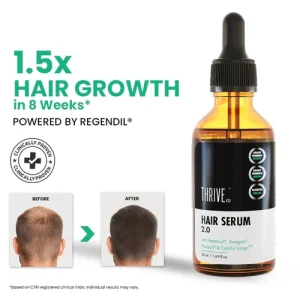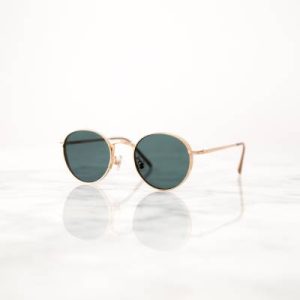The beauty industry has long been known for its one-size-fits-all approach, with countless products vying for consumer attention. However, a transformative shift is underway as brands increasingly recognize the value of personalization in beauty products. With advancements in technology, the rise of social media, and a growing desire for individual expression, personalized beauty is not just a passing trend; it’s a movement that is fundamentally altering how consumers interact with beauty and skincare.
The Evolution of Personalization in Beauty
Personalization isn’t a new concept, but its implementation in the beauty sector has seen a significant leap in recent years. Historically, consumers relied on broad categorizations—skin type, hair type, and preferences—when selecting products. However, the advent of sophisticated data analytics and consumer feedback mechanisms has paved the way for brands to tailor products to meet individual needs.
Modern consumers now expect beauty products that reflect their unique identities, lifestyles, and preferences. This has led to a surge in personalized offerings from both established brands and niche startups. With digital diagnostics, AI algorithms, and customization platforms, brands can develop products that speak directly to a consumer’s skincare concerns or beauty aesthetics.
Impact of Technology on Personalization
Technology plays a pivotal role in the personalization of beauty products. With the use of sophisticated algorithms and artificial intelligence, brands are gathering extensive data about consumer preferences, skin types, and even the effects of environmental factors on skin health. Companies like Ilia Beauty and Function of Beauty have harnessed AI to deliver products that not only meet but anticipate the unique needs of consumers.
For example, Function of Beauty offers a customizable haircare system that allows users to create products tailored precisely to their hair type and concerns. After filling out a comprehensive quiz, consumers receive a proprietary blend that addresses issues like frizz, volume, and scalp health. This kind of customization fosters brand loyalty, as consumers feel a deeper connection to products that have been formulated specifically for them.
The Role of Social Media and Influencers
Social media platforms have amplified the desire for personalized beauty products. Influencers and beauty enthusiasts share their individual beauty journeys, highlighting the importance of personalized solutions to address specific skin concerns. This has generated a broader cultural narrative that celebrates uniqueness and encourages experimentation.
As consumers scroll through beautifully curated feeds of makeup tutorials and skincare routines, they are inspired to seek products that resonate with their own experiences. Platforms such as Instagram and TikTok amplify voices advocating for diversity in beauty, leading to a greater demand for tailored solutions. Brands are recognizing this trend and rolling out campaigns emphasizing their commitment to individuality, not just in marketing but also in product formulation.
Challenges and Considerations
While the personalized beauty movement presents exciting opportunities, it also comes with several challenges. Formulating truly effective personalized products requires in-depth knowledge of cosmetic chemistry and dermatology. Brands must ensure they have the scientific backing to support their formulations, especially as consumers become more knowledgeable about ingredients and their impacts on skin health.
Additionally, confidentiality and data security are paramount when collecting and analyzing consumer data. Brands must navigate the complex landscape of privacy laws and ensure that they have clear consent for any data usage. Trust is a crucial component of the consumer-brand relationship, and maintaining that trust is vital as consumers become increasingly aware of how their personal information is being utilized.
A Glimpse into the Future
The future of the beauty industry appears to be deeply intertwined with personalization. As more consumers demand tailored solutions, brands are likely to invest further in technologies that allow for customization. Innovations like 3D printing for makeup, augmented reality for virtual try-ons, and even skin diagnostics via apps could redefine the shopping experience.
Moreover, the sustainability movement is also finding its way into personalized beauty. Many consumers now prefer products that not only cater to their individual needs but are also eco-friendly. Brands that can successfully merge customization with sustainability will likely rise to the forefront of the beauty market.
Conclusion
Tailored vanity is more than just a trend; it’s a reflection of a societal shift towards individual identity and self-expression. As consumers become increasingly engaged in their beauty choices, the demand for personalized products will continue to grow. In this evolving landscape, brands that embrace innovation while prioritizing consumer needs may find themselves at the helm of the beauty industry’s future. In essence, the beauty revolution is here, and it’s all about you.
Related Products
-
Sale!
Product 2025-10-01
Cosmetic Products€14,90Original price was: €24,28.€18,18Current price is: €18,18.
€18,18 incl. VAT -
Top Cosmeric Product 2024 | Best Skincare & Beauty Solutions
Body Care€10,00€12,20
€12,20 incl. VAT -
Sale!
Soluta.
Accessories€200,00Original price was: €244,00.€244,00Current price is: €244,00.
€244,00 incl. VAT





